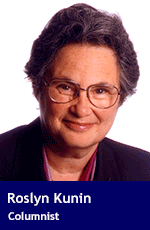And how broken election promises are undermining our faith in government
 When it comes to trust, politicians, for many of us, tend to rank quite low on the list. They often go to great lengths to understand what we, their electors, want, bombarding us with endless surveys and polls via phone and online platforms to discern what pleases us most. As election time approaches, they craftily promise to deliver on these desires.
When it comes to trust, politicians, for many of us, tend to rank quite low on the list. They often go to great lengths to understand what we, their electors, want, bombarding us with endless surveys and polls via phone and online platforms to discern what pleases us most. As election time approaches, they craftily promise to deliver on these desires.
Somehow, after the election, what we asked for never seems to be delivered. If they were, we would all have our own family doctors and prompt healthcare services. Affordable housing would cease to be an oxymoron, and we would not be tripping over homeless people on the sidewalks.
We have learned to become somewhat skeptical about the campaign promises that politicians make, usually with the additional enticement that it will all get done if we just give them one more term. If we cannot put our faith in pre-election speeches, how can we truly gauge government leaders’ actions once they assume office?
There is a concept in economics that is useful in many aspects of life. It is called revealed preference. As the name implies, revealed preference suggests that you judge people not by what they say but by what they actually do. A common example would be those people who say that they eat healthy while consuming a meal of hamburgers and fries. Looking at what they do would give you a more realistic view of their diet than listening to what they say.
The same approach can be applied to political leaders. What they say they want and often what they claim to be actually doing can be very different from what is really being done. The less democratic and the more despotic the government, the greater this discrepancy.
Take China, for instance. Since 1949, it has been under the rule of the Communist Party. Its stated goal is to improve the lives of ordinary Chinese people by freeing them from domination by greedy upper classes and foreign powers. To a large extent, this goal has been achieved. The upper classes were wiped out. China is definitely its own country now, and the standard of living of the average Chinese person has risen dramatically since the middle of the last century.
Nevertheless, much of what has happened in China does not seem to be what ordinary people would want from their government. The infamous one-child policy required very heavy-handed enforcement. The Tiananmen Square demonstrations clearly indicated that all the good ordinary people had been promised by their government was not being delivered.
If we look at what the Chinese government today is revealing through its actions, it is clear that its biggest concern is maintaining power for the Communist Party and its current leaders. Economic well-being, as indicated by the severe COVID-19 lockdowns, doesn’t seem to be high on their list of priorities. Nor does educational and social development, given constraints on school curricula and internet usage.
These actions show that what the Chinese government prefers, above all, is the continued reign of the Communist Party.
Russia’s President Vladimir Putin, on the other hand, has articulated his ambition to transform Russia into a great empire. Yet his recent actions, such as the unprovoked attack on Ukraine, might not result in Russia’s greatness; instead, they may only serve to elevate Putin and his cronies. Should these actions prove unsuccessful (which they have been up to this point), it would constitute a defeat for both Putin and Russia.
To date, his actions have only inflicted harm upon Russia as a nation and its citizens. The people did not want this war, evident in Putin’s avoidance of referring to it as a war. People do not want to put their lives on the line in this struggle, as increasing numbers are being forced to do. They would not choose to have Russia’s limited resources being used for weapons instead of for needed consumer goods.
Whether in Canada or abroad, it’s crucial to observe what politicians do rather than merely listening to what they say. There is usually a difference.
Dr. Roslyn Kunin is a public speaker, consulting economist and senior fellow of the Canada West Foundation.
For interview requests, click here.
The opinions expressed by our columnists and contributors are theirs alone and do not inherently or expressly reflect the views of our publication.
© Troy Media
Troy Media is an editorial content provider to media outlets and its own hosted community news outlets across Canada.

